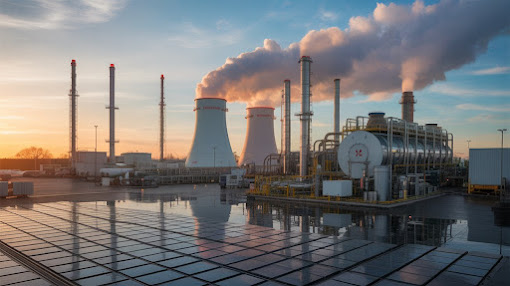Paving the way towards green contaminant analysis: Strategies and considerations for sustainable analytical chemistry
🌿 Paving the Way Towards Green Contaminant Analysis: Sustainable Strategies for Analytical Chemistry ♻️
In today’s world, sustainability is no longer a choice—it’s a necessity! 🌍 When it comes to analytical chemistry, traditional contaminant analysis methods often involve hazardous chemicals, high energy consumption, and waste generation. 🚯 But what if we could make this process more eco-friendly? Enter green analytical chemistry (GAC)—a game-changer in contaminant analysis! 💡
Let’s explore how we can embrace sustainability in analytical chemistry while maintaining precision and efficiency. 🔬✨
🌱 Key Strategies for Sustainable Contaminant Analysis
1️⃣ Solvent-Free or Green Solvent Approaches
Traditional solvents like chloroform and acetonitrile contribute to environmental pollution. 🌫️ Instead, green alternatives such as ionic liquids, deep eutectic solvents, and water-based systems can significantly reduce toxicity and waste! 💧
2️⃣ Miniaturization of Analytical Techniques
Why use more when you can do more with less? 🤏 Microextraction techniques, lab-on-a-chip devices, and portable sensors help reduce reagent consumption while enhancing efficiency. 🚀
3️⃣ Energy-Efficient Instrumentation
High-energy-consuming instruments are a big no-no for sustainability! ❌ Switching to low-energy techniques like ambient ionization mass spectrometry (AI-MS) or green chromatography can make a huge difference. ⚡
4️⃣ Biodegradable and Recyclable Materials
From sample containers to chromatographic columns, using biodegradable and recyclable materials helps cut down plastic pollution. 🌎 Look for eco-friendly labware to keep your footprint minimal! 👣
5️⃣ In-Situ and Real-Time Monitoring
Traditional lab-based methods require extensive sample preparation and transportation. 🚚 A better alternative? On-site analysis with sensors and portable spectrometers for real-time contaminant detection. 🕒 No delays, no excess waste!
✅ Challenges & Considerations
While green analytical chemistry is promising, some hurdles remain:
🔹 Initial costs for sustainable technologies can be high 💰
🔹 Standardization of green methods is still evolving 📜
🔹 Some green solvents and materials may not yet match the performance of conventional ones ⚖️
However, the long-term environmental and economic benefits far outweigh these challenges! 🌟
🌎 The Future of Green Contaminant Analysis
The shift towards sustainable analytical chemistry is not just a trend—it’s the future! 🚀 By embracing eco-friendly methodologies, we can ensure accurate contaminant analysis while preserving our planet for future generations. 🌱
Are you ready to revolutionize your lab with green chemistry? Let’s make science smarter, safer, and more sustainable! 💚🔬
#GreenChemistry #SustainableScience #EcoFriendlyLabs #AnalyticalChemistry
International Phenomenological Research Awards
Website Link: https://phenomenologicalresearch.com/
Nomination Link: https://phenomenologicalresearch.com/award-nomination/?ecategory=Awards&rcategory=Awardee
Contact Us For Enquiry: contact@phenomenologicalresearch.com
#Phenomenology#ResearchAwards#InternationalAwards#AcademicRecognition#QualitativeResearch#PhenomenologicalStudies#ScholarlyAchievement#ResearchExcellence#HumanScienceResearch#professor #academic #sciencefather#VoiceTherapy #MentalEffort #PatientPerception #VocalRehabilitation #SpeechTherapy #CognitiveLoad #PatientExperience #TherapeuticOutcomes #VoiceHealth #HealthcarePsychology
You tube: https://www.youtube.com/channel/UCga5JVq6VElDLksyLzNqybg
Twitter: https://x.com/compose/post
Instagram: https://www.instagram.com/phenomenoresearch/?hl=en
Pinterest: https://in.pinterest.com/phenomenoresearch/
Blogger: https://phenomenological21.blogspot.com/
Whatsapp Channel: https://whatsapp.com/channel/0029Vazl6GD7z4kkTlmIbc29




Comments
Post a Comment